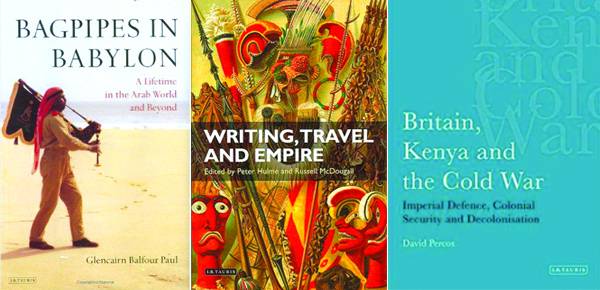
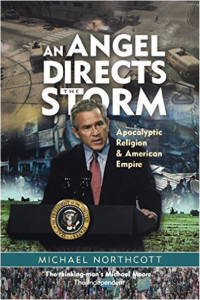
An Angel Directs the Storm: Apocalyptic Religion and American Empire
Michael S. Northcott
I.B.Tauris & Co Ltd (2007)
Rs7,810
This passionate and powerfully argued book takes its title from President Bush’s inaugural speech, when he quoted 18C statesman John Page, who enquired if it were not ‘an angel who directed the storm’ within which America came into being. Michael Northcott appraises two visions of religious freedom: the apocalyptic vision of George W. Bush and the Christian conservatives who back his policies, particularly in relation to Iraq and the so-called war on terror; and the peaceable vision of a Christian majority elsewhere who resist what they view as American neo-imperialism with an overlay of Christian apocalyptic rhetoric. Northcott suggests that Americans urgently need to recover a Christian critique of ‘Empire’ if their religion is to avoid the charge of idolatry.
Michael Northcott’s teaching and research is in the areas of Christian Ethics, ecology and religious ethics, and economy and ethics. He has published 12 books and over 70 academic papers. He has been visiting professor at the Claremont School of Theology, Dartmouth College, Duke University, Flinders University, and the University of Malaya.
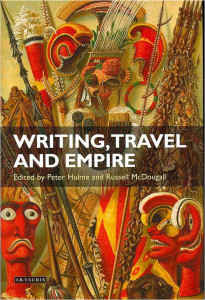
Writing, Travel and Empire
Peter Hulme, Russell McDougall
I.B.Tauris & Co Ltd (2007)
Rs9,455
The British Empire drew on the talents of many remarkable figures, whose lives reveal a wonderfully rich involvement with the crucial issues of the period. In many cases they left a legacy of travel writing, novels, biography and ethnography which made important contributions to our knowledge of other cultures. Writing, Travel and Empire explores the lives and writings of eight such figures, including Sir George Grey, Gertrude Bell, Sir Hugh Clifford, and Roger Casement. All travelled the Empire - from Grey, the renowned colonial governor who undertook dangerous journeys to the interior of Australia, to Tom Harrisson, the emaciated polymath, war hero and Arctic explorer, whose time in the New Hebrides embraced both cannibalistic rituals and a meeting with film legend Douglas Fairbanks Sr, who sought Harrisson out for a Hollywood feature about savage life. All saw themselves as writers, despite their very different approaches and interests, and each was writing against a backdrop of the impending disappearance of indigenous cultures around the world.
Writing from the margins of what was shortly to become the more formalised discipline of anthropology, their work yields interesting insights into both the issues of empire and the ways in which academic disciplines define the boundaries of their subject. Embracing themes such as gender and travel, racial science, the globalisation of ‘native management’ and the internal colonies, and with a geographical coverage that extends from South America to Russia via Africa and the South Seas, Writing Travel and Empire will engage all those with an interest in cultural geography, anthropology, history, postcolonial studies, biography and travel writing.
Peter Hulme is Professor of Literature at the University of Essex. He is co-editor of the Cambridge Companion to Travel Writing.
Russell McDougall is Associate Professor of English at the University of New England, New South Wales. He is co-editor of The Roth Family: Anthropology & Colonial Administration.
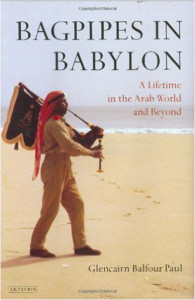
Bagpipes in Babylon: A Lifetime in the Arab World and Beyond
Glencairn Balfour Paul
I.B.Tauris & Co Ltd (2005)
Rs3,288
With rich anecdotal detail and enjoyable witty style, this is an autobiography of a distinguished diplomat that provides new insights into the background of Middle Eastern diplomacy in the twentieth century. “Saddam seized me by the shoulders and marched me by his side in a sort of embrace, saying, ‘Can’t you British understand that there is nothing in the world I detest more than a Russian Communist - except an Iraqi one? Get that through to your stupid Government.’” That was late 1969 as Iraq was tilting towards Moscow during the Cold War. The occasion was the author’s first audience with Saddam. In his long and distinguished career in the Arab world, Glencairn Balfour Paul witnessed momentous changes in the region. Bagpipes in Babylon describes the colourful experiences of his working life including his acquaintance with Wilfred Thesiger, his friendship in Beirut with Kim Philby, and his close relations with King Hussein of Jordan. Following retirement, he embarked on a second career in academia and his travels continued. Bagpipes in Babylon is a rich and entertaining account of a lifetime in the Arab world, and beyond.
Glencairn Balfour Paul was District Commissioner in the Sudan and Ambassador in Iraq, Jordan and Tunisia. On retirement, he became a Research Fellow at Exeter University and is author of The End of Empire in the Middle East, the Middle East section of the Oxford History of the British Empire, and a collection of his poetry, A Kind of Kindness.
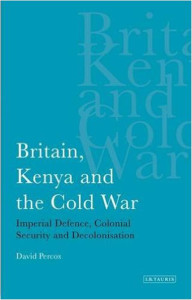
Britain, Kenya and the Cold War: Imperial Defence, Colonial Security and Decolonisation David Percox
I.B.Tauris & Co Ltd (2012)
Rs7,810.00
Far from having to “scram from Africa” following the abandonment of her “East of Suez” role, and despite the problems of Mau Mau, and even the Suez debacle on a larger international stage, Britain continued to vigorously pursue imperial African interests. And Kenya was centerstage. Much scholarship has been devoted to the Emergency (1952-60), fear of a post-Mau Mau civil war, de-colonization, and setting up independent Kenya, but little has been published on British policy in pursuing her vital interests beyond independence. Britain, Kenya and the Cold War, shows Britain maintaining her strategic priorities in Kenya - cultivating the moderate Kenyatta government, giving up the unacceptable colonial army base, but retaining military camps, rights of overflying, staging and training, and arming and training the Kenyan military, including internal security. Kenyan de-colonization and British defense interests were intimately linked and vital within the context of the Cold War and East-West regional rivalry.
David Percox carried out his research at the Department of History, University of Nottingham.
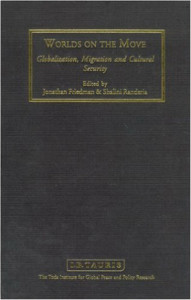
Worlds on the Move: Globalisation, Migration and Cultural Security
Eds. Jonathan Friedman & Shalini Randeria
I.B.Tauris & Co Ltd (2004)
Rs7,810.00
Diasporas have become a visible phenomenon of the modern world. In airports, shopping centers, city parks are found recent immigrants from many different countries. The impact of these “worlds on the move” on globalization, migration, and identity negotiations is the subject matter of this book written by a distinguished group of scholars from around the world.
Jonathan Friedman is Director of Studies at the Ecole des Hautes Etudes en Sciences Sociales in Paris and Professor of Social Anthropology at the University of Lund, Sweden. He has written extensively on issues related to global system history, ethnicity and indigenous movements. Shalini Randeria is a fellow of the Wissenschaftskolleg in Berlin. Her research interests are in the fields of legal anthropology, anthropological demography, and development studies.

